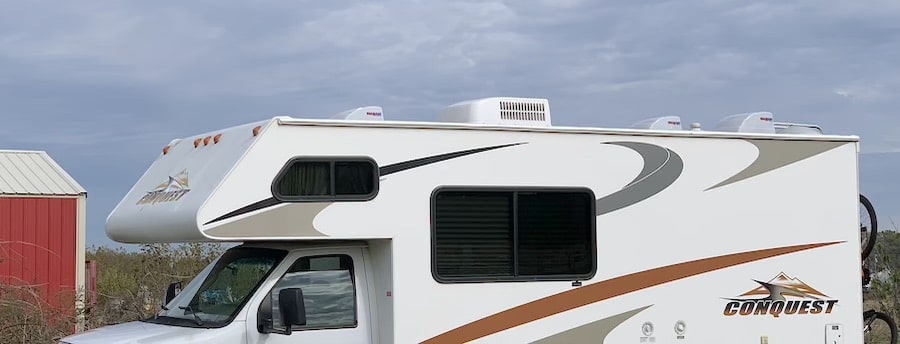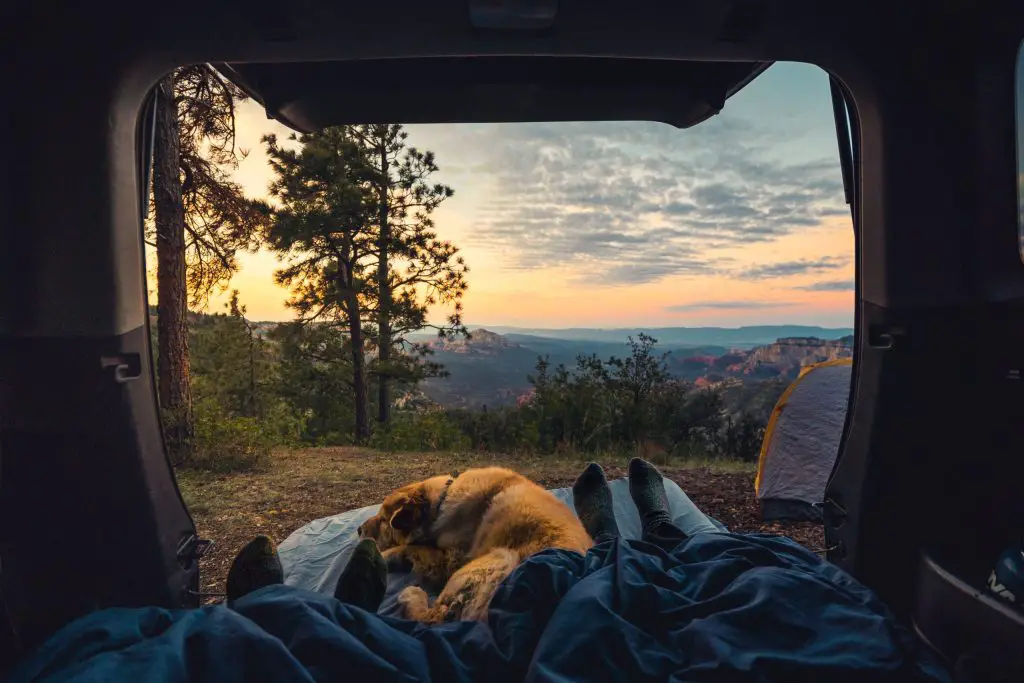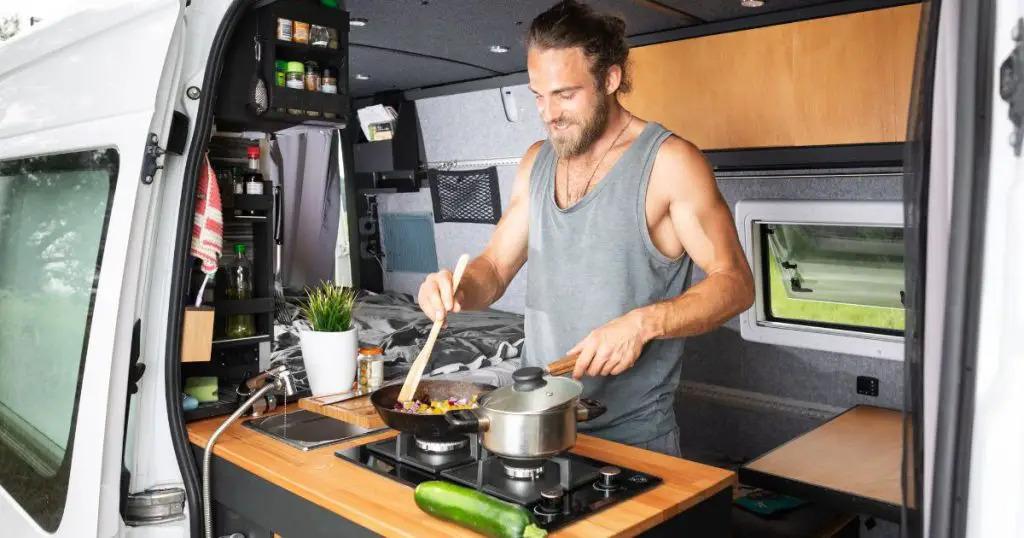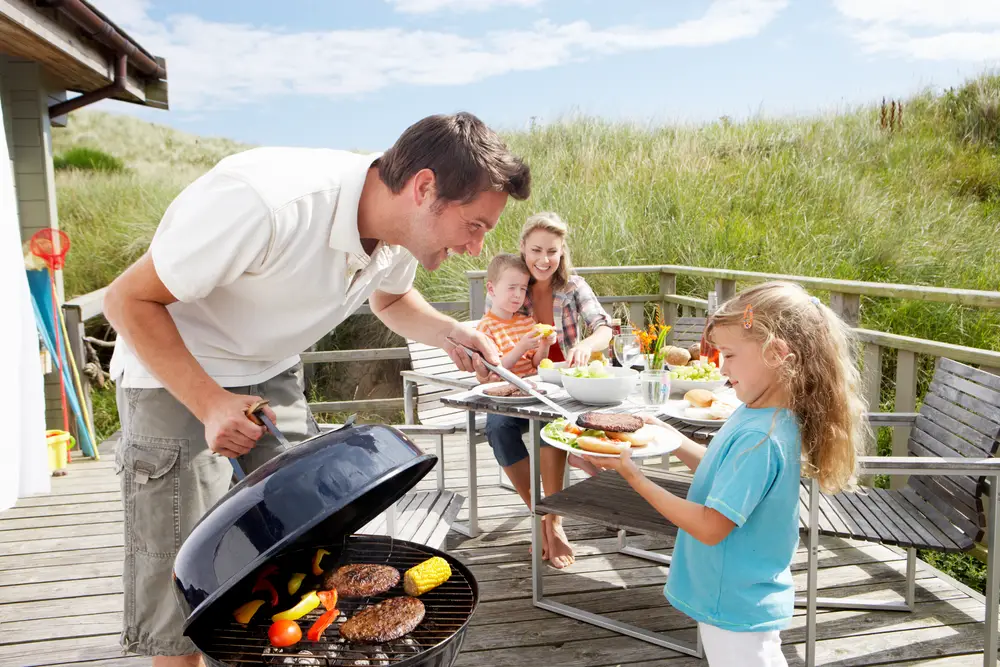If you’re a camper enthusiast looking for a more cost-effective way to power your recreational vehicle, you may be wondering if it’s possible to run a camper off of 110. While there are certain limitations, it is possible to convert your camper so that you can use household 110-volt electricity instead of the more expensive propane. In this article, we’ll explore the pros and cons of running a camper off of 110, plus the potential cost savings of this conversion. Whether you’re just starting out with a camper or you’re an experienced RV enthusiast, this article has all the information you need to decide if running a camper off of 110 is the best choice for you.

Can 110V Power Be Used to Operate a Camper?
Yes, 110V power can be used to operate a camper. Most campers are designed to be powered by either 110V or 220V electricity. This means that you can use the same power source to power your camper as you would use to power your home. In addition, some campers can be connected to a generator to produce 110V power.
When using 110V power to operate a camper, it is important to ensure that the electrical system is properly wired. This means that the camper must be hooked up to a 110V outlet and all electrical connections must be secure and properly grounded. Additionally, the camper must be plugged into a properly rated surge protector to protect the camper from power surges.
Once the camper is properly wired to the 110V power source, it is important to ensure that all electrical appliances and devices in the camper are rated for 110V power. This will ensure that all devices in the camper are properly powered and safe to use. Additionally, it is important to follow the manufacturer’s instructions when using 110V power to operate a camper.
What Types of Appliances Can Be Powered By 110V?
A wide variety of appliances can be powered by 110V, including lights, refrigerators, microwaves, and TVs. Lights and TVs typically draw the least amount of power, while refrigerators and microwaves draw more power. It is important to check the wattage of each appliance to make sure it is within the range of 110V power. Additionally, it is important to make sure the total wattage of all appliances does not exceed the capacity of the 110V power source.
When using 110V power to operate a camper, it is also important to make sure that the electrical system is properly wired and grounded. This will help ensure that the camper is protected from power surges and that all appliances and devices in the camper are properly powered. Additionally, it is important to follow the manufacturer’s instructions when using 110V power to operate a camper.
What Types of Generators Can Be Used to Produce 110V Power?
Generators can be used to produce 110V power for a camper. The type of generator that is best suited for this application will depend on the size and power requirements of the camper. Smaller campers may require a portable generator while larger campers may require a larger, stationary generator. Additionally, the generator must be properly rated for the type of power it is producing and must be hooked up to the camper in accordance with local and national electrical codes.
When using a generator to produce 110V power for a camper, it is important to make sure that the generator is properly maintained. This includes making sure the oil and fuel levels are adequate and that the generator is regularly serviced by a qualified technician. Additionally, the generator must be properly grounded and connected to the camper in accordance with local and national electrical codes.
Is 110V Power Safe to Use in a Camper?
Yes, 110V power can be safely used in a camper as long as it is properly wired and grounded. Additionally, all appliances and devices in the camper must be rated for 110V power. This will help ensure that all devices in the camper are properly powered and safe to use. Additionally, it is important to make sure the total wattage of all appliances does not exceed the capacity of the 110V power source.
When using 110V power to operate a camper, it is important to make sure that the electrical system is properly wired and grounded. This will help to protect the camper from power surges and ensure that all appliances and devices in the camper are properly powered. Additionally, it is important to follow the manufacturer’s instructions when using 110V power to operate a camper.
Related Faq
1. Can You Run a Camper Off of 110?
Yes, it is possible to run a camper off of 110-volt electrical current. Most recreational vehicles and campers are designed to run off of 110-volt household current. This current can be supplied by a generator, an RV-specific power cord, or a generator that runs off of propane or natural gas. In some cases, a camper may even have a built-in generator that can be used to provide power.
2. How Does 110-Volt Power Work in a Camper?
When 110-volt power is supplied to a camper, it is usually routed through an RV power cord, which is then connected to an electrical outlet. From there, the power is routed to the camper’s electrical outlets, allowing appliances and other devices to be powered. It is also possible to connect certain appliances directly to the 110-volt power source, such as an air conditioner or water heater.
3. What Advantages Does 110-Volt Power Offer?
The main advantage of using 110-volt power to run a camper is that it is much more readily available than 12-volt power. Most homes and businesses have 110-volt outlets, making it easy to find a source of power for a camper. Additionally, 110-volt power is usually much more reliable than 12-volt power, as it is not affected by temperature or other environmental conditions.
4. Are There Any Disadvantages to Using 110-Volt Power?
The main disadvantage of using 110-volt power to run a camper is that it can be more expensive than 12-volt power. This is because the electrical outlet and cord must be purchased separately, and the electric current must be routed through the camper itself, which can require additional materials and labor. Additionally, 110-volt power can be dangerous if not used correctly, as it can cause fires or electric shocks.
5. What Safety Measures Should Be Taken When Using 110-Volt Power?
It is important to take certain safety measures when using 110-volt power in a camper. First, only use cords that are specifically designed for RV use, as these are designed to handle the higher voltage of 110-volt power. Additionally, it is important to make sure that all wiring is properly installed and that all outlets are properly grounded. Finally, be sure to use a surge protector to protect your appliances and devices from sudden power fluctuations.
6. Is 110-Volt Power Necessary to Run a Camper?
No, it is not necessary to use 110-volt power to run a camper. In some cases, 12-volt power may be sufficient, as long as the camper is equipped with the appropriate appliances and devices. However, 110-volt power is usually more reliable and can provide more power to run larger appliances and devices. Additionally, 110-volt power may be necessary in certain areas, such as when camping near a lake or river, where 12-volt power is not available.
How to Plug Your RV into Your House 110 Outlet | 15M/30F
As you can see, there are many ways to run a camper off of 110 volts. Depending on the size and type of camper, you can choose from a variety of different power sources, such as a generator, an inverter, or a shore power connection. Just be sure to do your research and follow safety precautions to ensure that your camper is running safely and reliably. With the right set up, you can enjoy the luxuries of home out in the woods.



